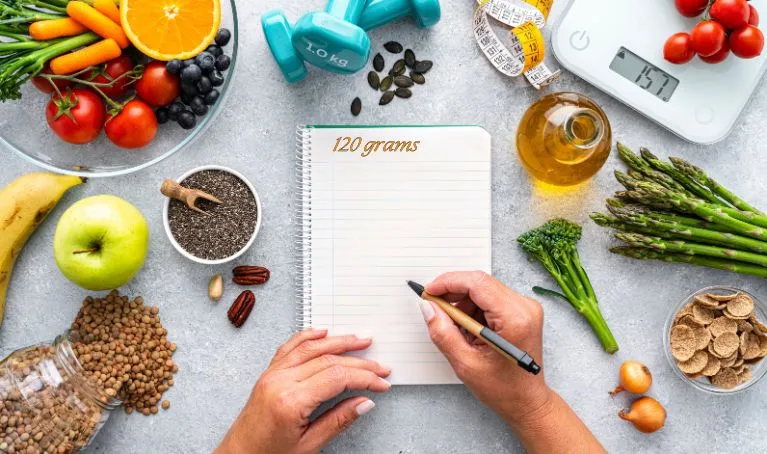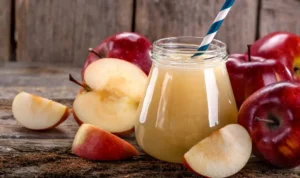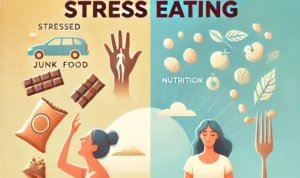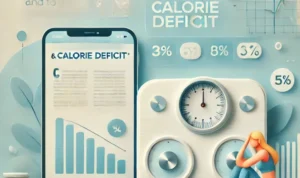Table of Contents
TogglePROTIEN; AN ESSENTIAL NUTRIENT
Protein is mainly required by our body to ensure proper growth and metabolism. Amino acids, involved in every metabolic process in our body, joins to form proteins. All the main components of the human body be it hormones, enzymes or anti-bodies, everything is made of proteins.
For example, hormones like insulin, glucagon, pituitary hormones all are proteins in nature. To your surprise, protein is the precursor of happy hormone, endorphin in the body that will make your mood lighter. So, eating high protein foods will make you feel relaxed and prevent the chance of anxiety that occurs after eating food.
Muscles and muscle fibers like myofibrils are made up of proteins, and hair, nails, and skin are made up of different kinds of proteins. Enzymes speeding up reactions in our body are protein in nature, prostaglandins; pain stimulators are proteinaceous in nature. Eating 120g proteins per day is essential for everyone to maintain their muscular body and overall good quality of life.
PROTEIN AS MAJOR MACRONUTRIENT
Proteins are that source of energy which is very sustainable and makes you feel full for longer periods. Protein rich diet is helpful in weight maintenance and even weight loss due to their ability to provide satiety.
Normally carbohydrates are the main source for the body, but proteins can be used as a fuel in the times when carbs and fats aren’t available.
Consuming high protein diet reduces the cravings. This can prove extremely beneficial if you are thinking of giving up on the extra inches and pounds. Consuming a high protein diet paired with low fat diet might prove a great weight loss promising you visible changes on the weight scale.
People who are unable to tolerate high carbohydrates foods like gluten containing foods are at extreme risk of malnutrition. So, to cater for such people high protein foods are added to their gluten free diet to ensure their weight maintenance.
What Happens When You High Protein Diet
Protein is the most important part of your diet, which has number of benefits explained below:
1. Muscle Growth and Repair:
Protein is most important for muscle building and repairing. When you are engaged in strenuous activities like bodybuilding, working, or even running, small tears occur in muscle fibers. This condition is immediately repaired by eating proteins, by building blocks, i.e., amino acids present in proteins. Protein helps in repairing the damage done by wear and tear. This helps build muscles and reduce overall weight during Ramadan.
2. Satiety and Appetite Control:
Protein is known for its satiety and hunger management characteristics, thus benefiting the person who is fasting from dawn till dusk. Eating high protein at sehri makes you feel full for longer times and preserves your energy. It delays stomach emptying time, preventing you from overeating. Its breakdown process is complex, which takes time to digest and thus you do not feel hungry again and again. It also leads to a caloric deficit diet for weight loss.
3. Metabolism Support:
Protein accounts for higher metabolic rate in the body which means that proteins require more energy to digest, breakdown, and absorb them as compared to fats, carbohydrates. Thus, consuming protein at sehri increases your metabolic rate and leads to weight loss by burning more calories.
4. Blood Sugar Regulation:
Consuming protein with carbohydrates at sehri can help delay the absorption of glucose into the bloodstream, preventing instant spikes in blood sugar and insulin levels. This helps maintain steady energy levels and may reduce the risk of insulin resistance and type 2 diabetes.
5. Immune Function:
Protein is a vital part of the human body. A number of hormones, organs and tissues in the human body are made up of proteins. Antibodies, hormones, and immune cells are also proteinaceous in nature. Consuming enough protein supports immune function and helps the body defend against infections and illnesses which seem a great problem during Ramadan.
6. Hormone Production:
There are certain hormones which are known to regulate your gut, hunger, appetite, and food intake. These are leptin and ghrelin and are also proteins. These hormones are the regulators which account for hunger and appetite. Eating protein rich Sehri regulates the production of these hormones in a balanced way. This prevents the person from cravings and hunger pangs throughout the day while fasting.
7. Sustained Energy Levels:
The energy level of the fasting person needs to be sustained throughout the day. This can be done by eating larger portions of proteins in sehri meal. Protein provides a slower release of energy compared to carbohydrates, which can help maintain energy levels throughout the day during fasting.
8. Nutrient Density:
eating nutrient dense foods instead of caloric dense foods is the key. Protein-rich foods are often nutrient-dense and provide essential vitamins and minerals necessary for overall health. Including protein which are lean sources for example legumes, chicken, fish, eggs, dairy products, nuts, and oils are helpful in maintaining energy levels throughout the day.
9. Hydration Support:
Hydration is the key when you want to lose fat while fasting. Protein sources like legumes and dairy products contain water content necessary for functioning throughout the day. When you are restricted from eating during the day, the water taken during the sehri accounts for hydration.
WHAT IS NORMAL PROTIEN REQUIREMENT FOR HEALTHY INDIVIDUAL
One gram of protein gives us 4 kcal of energy. The next question that arises is How much protein you need to consume daily? The answer is quite simple.
Daily protein requirement= 0.8-1g per kg of body weight
This is the protein requirement for a normal and healthy individual. If there is a disease condition, the requirements vary depending upon the degree of illness and severity. You multiply the body weight with a specific factor depending upon the physical activity of the person
- Sedentary: 0.8g per kg of body weight
- Lightly active: 1g per kg of body weight
- Moderately active: 1.2g per kg of body weight
- Highly active: 1.5g per kg of body weight
This required amount of protein is achieved by a daily diet comprising of foods from all the groups. If the requirement isn’t fulfilled through diet, dietitian’s advice needs to be taken. He/ she may prescribe protein supplements like protein powders.
The protein powders can be added to your diet in various forms, as breakfast smoothies, shakes, as meal replacement shakes and as post workout snacks.
The Importance of Protein Timing
Consuming 120 grams of protein daily is essential, but when you eat it also matters. By timing your intake strategically, you can maximize the benefits for muscle recovery and overall health.
- Post-Workout Protein: After exercise, consuming protein immediately helps repair muscle and boosts growth. This “anabolic window” is when your body needs amino acids most. Fast-digesting options like whey protein or lean meats are ideal.
- Spread Throughout the Day: Instead of eating all your protein in one or two meals, it’s more effective to distribute it evenly. Aim for 20-30 grams per meal to optimize muscle synthesis and control hunger.
- Protein at Breakfast: Starting your day with a protein-rich breakfast stabilizes energy and reduces cravings. Foods like eggs or Greek yogurt can provide lasting benefits throughout the day.
RESEARCH BASED INSIGHTS
- A study was conducted in 2017 in which it was found that participants eating 0.34g per kg body weight proteins showed significant weight loss in 6 months. Seventy five percent people had achieved desired weight and lost extra pounds as compared to the group who took normal protein.
- Another study found that eating 2 grams protein per kg body weight led to more muscle build up and prevented muscle degeneration. The study showed marked improvement in energy levels of the persons consuming high protein diet.
- A study was done on women of 65 years and older in 2015 to determine the optimal dose. The study revealed that 1.3g proteins per kg body weight is required to prevent age related muscle loss.
- A weight loss-oriented study was conducted in 2015 in which the role of protein on weight loss and fat mass was studied. The results revealed that 1.6g protein per kg body is vital to ensure fat loss and to maintain muscle mass along with shedding extra pounds on scale.
SOURCES AND TYPES OF PROTIENS
The proteins are of different types and can be classified into high biological value and low biological value proteins, depending upon their ability to get absorbed in body and blood. HBV and LBV proteins come from different sources listed in the table below. High biological value proteins are those from animal sources and low ones are obtained from plant sources.
HIGH BIOLOGICAL VALUE PROTEIN
Obtained from animal sources.
Common sources include.
- Organ meats like liver, brain
- Lean meat like chicken, fish
- Dairy products like milk, cheese
- Eggs
LOW BIOLOGICAL VALUE PROTEINS
Obtained from plant sources.
Common sources include.
- Beans like kidney, white, green beans.
- Nuts like walnuts, peanuts.
- Seeds like flaxseeds, chia seeds.
- Lentils and whole grains like oats.
How to fulfil energy requirements for Vegetarians?
People who are vegetarians need essential nutrients like amino acids, vitamin B12 and iron in their bodies more than non-vegetarians because they are avoiding main sources of proteins i.e., meat, mutton, beef, eggs, milk. So, in order to fulfil their protein requirement high protein vegan recipes must be prescribed to them by their dietitian.
There are some really yummy high protein vegan snacks to fulfil their per day protein requirements. These include peanut butter toast, chickpeas salad, Greek yogurt shots, protein bars, soy chunks, and tofu salad.
SAMPLE DAILY HIGH PROTEIN MEAL PLANS (120g per day)
DAY 1
Breakfast
- 2-3 whole eggs
- 2 multigrain bread slices
- 2-3 nuts
- 1 pear/peach
- ½ cup low fat milk
Lunch
- Asian style chicken salad (comprising of olive oil, salad greens, 150g chicken breast, corns, olives)
- 1 apple
- ½ cup low fat yogurt
Dinner
- Beans/lentils 1 cup boiled
- 2 chicken kababs
- 12 tbsp. brown rice
DAY 2
Breakfast
- Smoothie bowl (Blend 1 cup Greek yogurt, strawberries, banana, 3 tbsp. milk. Top with coconut slices, poppy seeds, sunflower seeds, chocolate chips)
- 2 boiled eggs
- Tea/coffee
Lunch
- 200g grilled fish
- Sauteed vegetables like asparagus, broccoli, peas, carrot
- 100g mashed potato
Dinner
- 1 cup cooked vegetable curry
- 1 whole wheat tortilla
- 1 cup low fat yogurt
DAY 3
Breakfast
- Overnight oats (5 tbsp oats soaked in ½ cup low fat milk. Top with banana, strawberries, granola, Greek yogurt)
- 2 whole boiled eggs
- 5 almonds
- Coffee
Lunch
- High protein chicken gravy (150-200g chicken)
- Brown rice/ whole wheat tortilla
- ½ cup low fat yogurt
- Raw vegetable salad (150g)
Dinner
- Beans tacos
- Raw vegetable salad with apple cider vinegar
- Chickpeas quinoa salad
DAY 4
Breakfast
- High protein moong pancakes
- 2 boiled eggs
- ½ cup Greek yogurt
- Coffee
Lunch
- Quinoa salad with salad greens
- 2 chicken kababs
- 1 pear/peach or cherries
Dinner
- High protein chicken club sandwich with cheese
- Vegetable salad
- Rice pudding (for sweet cravings)
FAQ’S
- How can I ensure I’m getting enough protein if I’m vegetarian/vegan?
Protein requirement for vegans is met by plant-based protein sources like chickpeas, beans, lentils, cheese, eggs, and quinoa.
- Is it safe to consume 120 grams of protein daily?
It is safe to consume this much protein because it helps you lose weight and make you feel full for longer periods.
- Can I adjust the meal plan based on my caloric needs?
Definitely! The meal plan is totally customizable according to your body needs.
CONCLUSION
So, in order to maintain your skin, nails, hair, muscles, hormonal health, proper immune function, and growth, you need to eat high protein diet. In addition to this, high protein diet is highly essential for losing weight and too in a healthy way.
So, follow the meal plans given in the article to lose those extra pounds.






